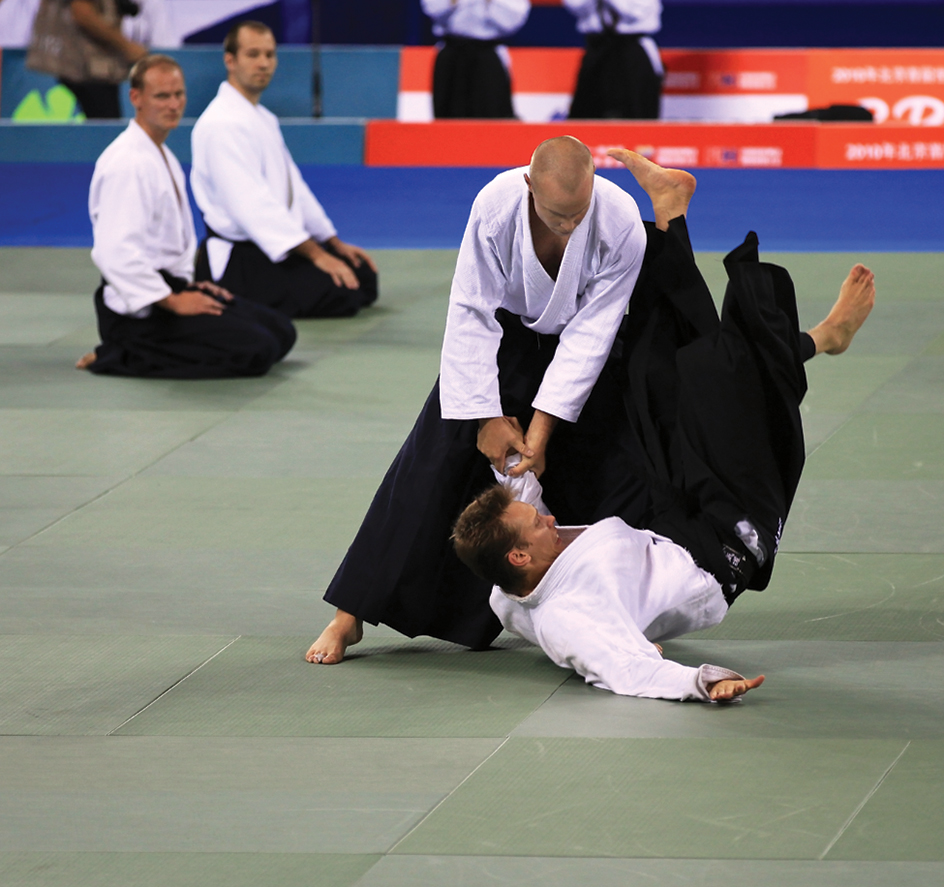Aikido, << eye KEE doh, >> is a popular martial art that originated in Japan. The word means the way of spiritual harmony. Aikido is a form of self-defense, but it is also a moral philosophy and sometimes a sport.

Aikido traditionally is a method of fighting without weapons. It is not based on physical strength. Practitioners use holds and throws to make opponents lose their balance, rather than attack opponents with kicks or hand blows. Aikido was developed from jujitsu, an ancient Japanese system of self-defense, usually accomplished without weapons.
Aikido stresses the need for a healthy and relaxed body, with a mind and spirit free of bad habits. A central element in aikido is called ki, which followers believe is the internal energy everyone possesses but few know how to use. Aikido makes people aware of their ki and how to utilize it properly. Aikido followers are taught that their ki is a source of mental strength and power located just below the navel.
Aikido was founded about 1925 by a Japanese teacher of martial arts named Morihei Ueshiba. Ueshiba studied with Buddhist priests as a child and Shinto priests as an adult, and precepts of these religions are important in aikido. There are many systems of aikido. One system, called Tomiki aikido, is also known as sport aikido. In this system, tournaments are held in which players can test their skills against both armed and unarmed opponents.
See also Martial arts .
